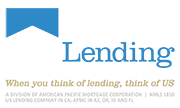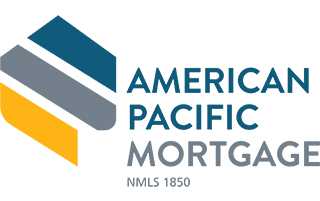Home Loan FAQs
YOU’VE GOT QUESTIONS, WE’VE GOT ANSWERS
This Home Loan FAQ page covers some of the commonly asked questions that you may have about loans, and how different aspects work.
There is also a FAQ section below covering Reverse Mortgages / H.E.C.M. (Home Equity Conversion Mortgage).
Feel free to look around.
Home Loans FAQ:
Many factors go into selecting a lender. One should feel comfortable and confident in their selected lender’s abilities and knowledge. There are many programs out there, and selecting a lender that knows the availability of programs and their impacts on your particular situation and goals is extremely important. Additionally, one should research reviews and online ratings of lenders to evaluate their performance and customer satisfaction. One of the best testaments to a competent lender is the confirmation from past clients.
The amount you may borrow is dependent upon several factors. These factors consist of loan type, your income, your debts, and your available money for a down payment and closing costs. Loan amount approval is primarily based on creditworthiness and your proposed debt vs. income. As a rule of thumb, most programs allow for a maximum monthly debt (including house payment) amount to be 43% of your gross monthly income.*
This amount can vary based upon area, loan type, and transaction details. As a good rule of thumb, be prepared to have an extra 3% of the purchase price set aside for closing costs.*
An Earnest Money Deposit is something negotiated between a buyer and a seller. This money “is” part of your down payment but used to put the property into contract. An Earnest Money Deposit is included in your down payment amount.
Loans are typically locked when Purchase Contract is received, and Escrow is opened. If there are significant improvements in pricing/rates when ready to close, the rate may float down.
The credit report and credit scores are reviewed to determine payment history, risk assessment, and other information.
Interest rate is determined by credit report, credit score, down payment, and program type. *And many more factors…
This will vary from individual to individual, and is determined by meeting with your loan officer and discussing your profile, and becoming educated on the many home loan program types/programs available.
How much you qualify for depends upon the loan program you choose, your gross monthly income, and your credit rating.
If your financial situation is simple, this can be determined in as little as a few hours
In other cases, it can take a few days if your loan officer needs to obtain a verification of employment
or other documentation that is not immediately available.
The Loan to Value ratio is the amount of the loan in relation to the value of the property. For example; if you owe $90,000 on your loan and the property is valued at $100,000 then you have a 90% loan to value.* Take the amount of your loan and divide it by the value of your property that will determine your LTV (loan to value).
Your payments will be determined by a few factors including but not limited to your loan amount, term of loan (30 or 15 year) your interest rate, your credit score and credit profile.* You should contact your loan officer to discuss.
An interest-only loan is typically a 30 year amortized loan with interest-only payments for the 5, 7, or 10 years.* When the interest-only period is up on the loan it then becomes fully amortized for the remainder of the term, which means your new payments will be based upon a repayment term of 24, 23, or 20 respectively, as opposed to 30 years which will increase the monthly payment.*
We will need to verify your asset for closing during the application process. Typically the funds will need to be delivered to the escrow company approx. 48 hours prior to close of escrow.
It is very common for family to Gift the Funds for down payment and/or closing costs. Family members can gift directly to the escrow for the new home for the buyer with just a small amount of added paperwork. If the funds are transferred to the buyer’s bank account there is an extra step of paper trailing the funds into that account with a copy of the check. Along with the Gift Letter that the Donor signs showing they had the funds available to gift.
It is important that you speak with your loan officer on the proper steps for your situation if it involves a gift for your purchase.
PMI is a type of mortgage insurance from private insurance companies used with Conventional Loans that have Less than 20% down payment involved with the purchase.* PMI Protects the lender if you stop making payments on your home loan for any reason in the future. This insurance guarantees your lender will get paid if you are unable to make your mortgage payments and you default on your loan. For the borrower, the benefit is that you can purchase or refinance your home with less than 20% down payment or equity position.* Once your loan is paid down below the necessary threshold you “may” be able to have the PMI removed from your loan on Conventional financing, thus lowering your payment. Many prefer Conventional financing as the PMI can later be removed. Government backed loans have their own form of PMI or in some cases called MIP, Mortgage Insurance Premium on FHA loans or Funding fee on VA Loans.
For more details on this speak with a US Lending Company loan officer who is very knowledgeable and can help you with the loan program – PMI loan that works for your situation.
If your monthly home loan payment says “PITI payment “ it is referring to Principle, Interest, Tax, and Insurance being all-inclusive in the payment. If your home loan requires a form of PMI Insurance, it would be included in the PITI payment as well. Look for the PITI payment and the breakdown of your payment when reviewing your loan package. Your Loan Officer will go over your estimated property tax and homeowners insurance with you on a purchase transaction until you obtain your actual homeowner’s insurance quote from the Insurance Agent that you choose to go with for your new home.
Discount points are fees paid to a lender at closing in order to lower your mortgage interest rate.* While buying points is sometimes a good decision, many times the purchase costs you more than it saves. The cost of each point is equal to one percent of the loan amount.*
For instance, for a $100,000 loan one discount point equals $1,000. Each discount point paid on a 30-year loan typically lowers the interest rate by 0.125 percent.* That means a 7.5 percent rate would be lowered to 7.375 percent if you purchase one point.*
Paying for points lowers your interest rate, because the lender receives the income in a lump sum at closing rather than collecting the interest as you make payments on your loan.*
Reverse Mortgages / H.E.C.M. (Home Equity Conversion Mortgage)
A H.E.C.M. (Home Equity Conversion Mortgage) is a unique loan also referred to as a Reverse Mortgage. It is designed for borrowers that are 62 years of age and older. It allows you to access your home equity in the form of monthly income, a line of credit to draw on or immediate cash, tax-free, to use for any reason, without ever having to make a mortgage payment on the loan, as long as you live in your home.
If you live in your home until your death, your heirs will have the choice to pay off the loan or sell your home and keep the remaining equity.
- You or your spouse are age 62 and older*
- You have enough equity in your home or you have other assets that you can liquidate to bring to closing if the loan is short of funds.
- You plan to keep your home as your Primary Residence
- You are able to pay your property taxes, homeowners insurance, and home maintenance costs
- You meet the income and credit requirements of the loan
*There are protections available to eligible non-borrowing spouses, and they can be less than 62 years old. Conditions and restrictions apply. Loans with borrowers that are not spouses are eligible for a HECM as well, but there are no NBS protections (spouses only). Talk to your loan representative about your unique situation.
- If you choose, you can receive some (or all) of the available funds as monthly payments to supplement your income
- If you leave some (or all) of the available funds in the credit line, you can take the funds when you need them, just like in a Home Equity Line of Credit
- You can take some or all the available funds as a lump sum disbursement, or
- A combination of the above
No, all income is currently income tax-free.
No, you retain the title to your home!





